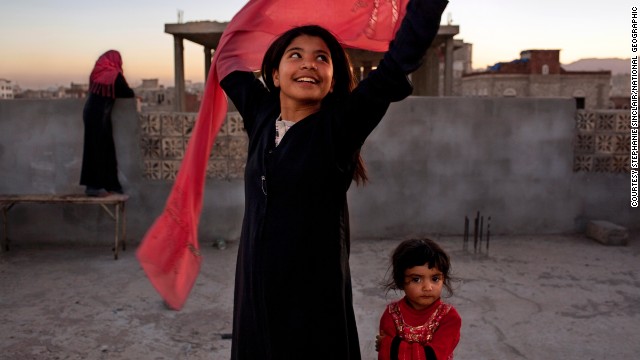By Nawal Ba Abbad,
Dr Nawal Ba Abbad is a doctor from Sanaa, Yemen, who in partnership with White Ribbon Alliance Yemen has campaigned tirelessly for a law against child marriage in her country.
Throughout my career as a doctor I have traveled from the mountains of Yemen to its deserts. I have seen first hand what happens when children give birth to children. I have seen the tombstones of girls who died too young because they married too young.
Yemen is one of only two countries in the world with no legislation on a minimum age of marriage.
With a national dialogue underway to establish a new constitution, there is now a chance to establish a safe age of marriage, protecting young girls who are currently married off as young as 9 years old.
As I advocate to end child marriage in Yemen, I always remember my best friend at school. We would talk about our future and what we wanted to be when we grew up. We had big aspirations, as young girls should. My friend was the smartest girl in our class. Everything felt possible.

But when she was 13, she was told to leave school to prepare for her wedding. Her dreams ended. We were all so upset. I still remember her wedding day as we tried to support her. It was such a sad day for us all, a stark comparison for so many whose wedding day is remembered as the happiest of their lives.
I was lucky. My parents did not want me to marry as a child. They were my firewall, protecting me from the pressure of all the people in my community who said I should marry. They were determined to give me a brighter future.
As I carried on my studies, and became a doctor, the image of my friend's wedding always stayed with me. So many girls in my country don't have the right to say "No, I don't want that man or this kind of life." My friend moved away and we didn't stay in touch.
My friend's story is not unusual. The UN estimates that one in three girls in Yemen are married before 18. Around the world, approximately 14 million girls are married as children every year.
The right to choose
To think of all the girls in my country who are forced into marriage, lose their personalities, their happiness and just have to obey what they are told to do, is what drives me forward in my work.
Child brides don't talk about it, but they suffer. A recent study in Yemen has shown that girls who have their rights taken from them in this way do not forgive their parents, and there is a breakdown of family relationships.
As a doctor I see the complications young girls are suffering from as they give birth before their bodies are ready. Girls not Brides, a civil society network campaigning against child marriage, suggests that girls under 15 are five times more likely to die giving birth
Yemen has one of the highest maternal death rates in the world. According to the White Ribbon Alliance, one in 90 women die in childbirth in my country. I cannot bear to continue to watch young women giving up their lives and having to give birth too young.
We must support our girls and women by providing better maternal health care, access to family planning and safe abortion.
We must work together to end early marriage so that all girls have the right to choose when and whom to marry and are able to finish their education, strengthening the bonds that are so important to us, with our friends and our family.
We know how to fix these problems. We can tackle many issues if we tackle early marriage.
Together in partnership with the White Ribbon Alliance in Yemen and many other activists we have been campaigning for a safe age of marriage for many years. Since the uprising in 2011, a new constitution is being drafted in my country.
This is an opportunity to establish a minimum age of marriage. But it is a narrow window of opportunity.
Too often girls have no voice, no choice, no access. I am determined to help them have a better future. My friend did not fulfill her dream, but by ending child marriage together we can make sure that girls in Yemen and around the world can fulfill theirs.


No comments:
Post a Comment